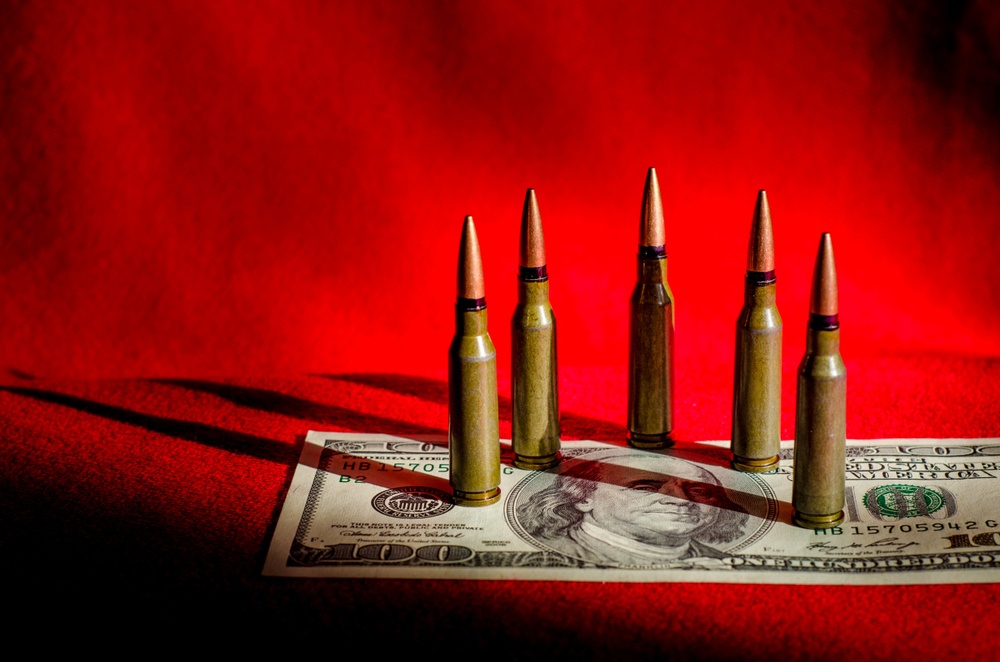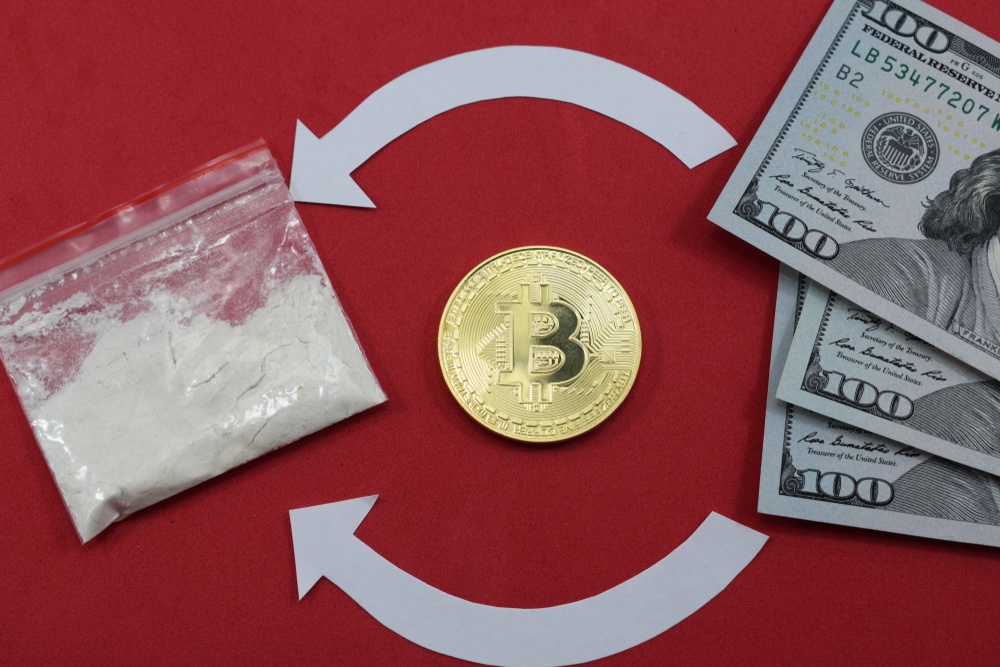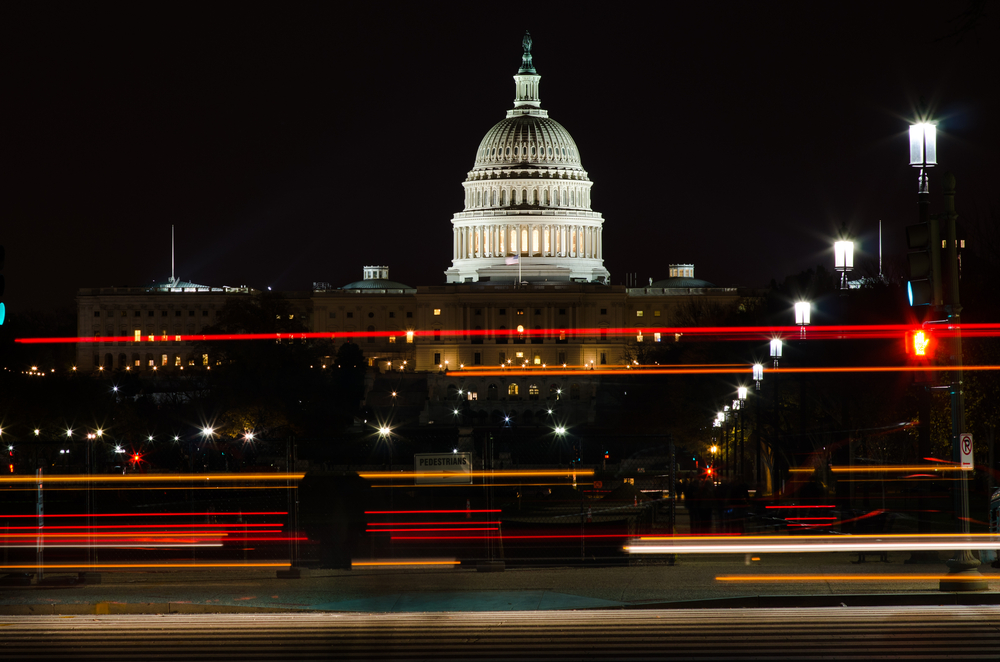10 Times US Banks & Politicians Funded Terrorism Without Bitcoin

Mnuchin fears that bitcoin will be used to launder money and fund terrrorism. Banks and Congress have been doing that with fiat. | Source: Shutterstock
U.S. Treasury Secretary Steven Mnuchin slandered cryptocurrencies at a press conference earlier this month. Mnuchin attempted to smear the industry with associations to money laundering and funding terrorism. He said he has “serious concerns” that bitcoin could be misused “by money launderers and terrorist financiers.”
As if to underscore the part of the picture Mnuchin is leaving out, the very next day KeyCorp shares fell on news the Ohio bank has uncovered $90 million worth of fraud by a payroll processor.
The reality is that mass fraud and nefarious money laundering schemes are endemic to legacy banking without bitcoin’s help. And the truth is that the U.S. government itself is more likely than anyone to use cryptocurrency to fund terrorism.
5 Times U.S. Banks Laundered Money Without Using Bitcoin

Though some have adopted bitcoin, criminals have no trouble using the legacy banking system to launder money. Oftentimes the banks are directly involved in the illicit operations themselves.
1. Wells Fargo (2010, $378 billion laundered) – In 2010, Wells Fargo-acquired Wachovia had to pay $160 million in penalties for failing to apply money-laundering controls. And that allowed the Mexican drug cartel to launder $378 billion through its bank.
2. JP Morgan (2018, $5.3 billion fine) – In October 2018, the U.S. Treasury fined JP Morgan $5.3 billion for violating “Cuban Assets Control Regulations, Iranian sanctions and Weapons of Mass Destruction sanctions 87 times.”
3. HSBC (2012, $1.9 billion fine) – In 2012, HSBC paid $1.9 billion in fines for laundering hundreds of millions of dollars for terrorism, the drug cartel, and sanctioned governments.
4. Danske Bank (2017, €200 billion laundered) – In 2017, Danske Bank got caught laundering $230 billion worth of dirty money out of Russia and former Soviet countries into Western banks.
5. Standard Chartered (2000s, $250 billion laundered) – In the 2000s, Standard Chartered laundered $250 billion for Iran.
5 Times the U.S. Funded Terrorism With Fiat

1. Operation Cyclone funded Mujahideen (1979-1989) – The U.S. CIA notoriously sent hundreds of millions of dollars to the most violent terrorist groups it could find in Pakistan and Afghanistan in the 1980s. There’s an excellent Hollywood movie about this starring Tom Hanks, “Charlie Wilson’s War.”
2. Reagan funded, armed Saddam Hussein (1980s) – It is no secret that Saddam Hussein was a U.S. client state and proxy against the Soviet Union and Iran in the 1980s. Furthermore, it is widely known that the U.S. armed and funded Hussein despite including Iraq on the 1979 list of state sponsors of terrorism.
3. $43 million grant to Taliban (May 2001) – Astoundingly, the U.S. State Department announced a $43 million grant to the Taliban just four months before the World Trade Center and Pentagon attacks.
4. Bush/Obama ATF sold guns to the cartel (2006-2011) – The Bush-Obama era ATF deliberately sold firearms to the violent Mexican drug cartel in Operation Fast and Furious.
5. Obama funded designated Al Qaeda affiliate in Sudan (2015) – In 2015, the Obama Administration granted $200,000 to an organization in Sudan that the U.S. Treasury had designated as a terrorist financier a decade earlier.
Let’s keep it real. If we’re concerned about money laundering and terrorist financing, we have much more pressing concerns than bitcoin. And maybe, instead of attacking the budding crypto industry, we should hold the government – and Wall Street banks – accountable for their role in criminal enterprises worldwide.
Disclaimer: The views expressed in the article are solely those of the author and do not represent those of, nor should they be attributed to, CCN.com.